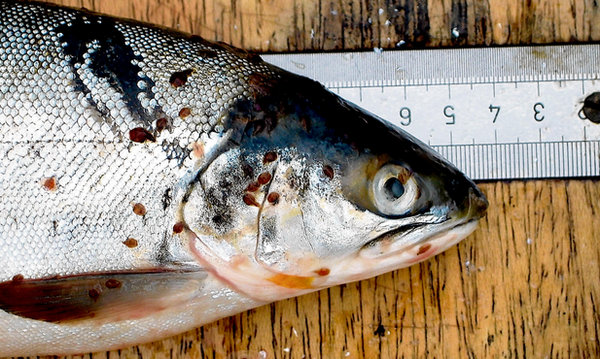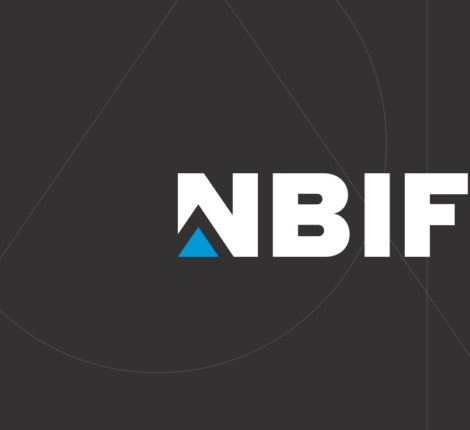- May 25, 2015
- Applied Research
- Comments : 0
Hey Mr. Salmon, TAKE Your Meds

AQUAVET ADDS MEDICATION TO SALMON FEED TO STAVE OFF SEA LICE
At this time of the year, as fiddleheads spring up through the forest floor, many New Brunswicker’s and Maritimer’s will be sitting down to eat the local delicacy, with a fresh salmon filet on the side.
While wild salmon is prized, almost all of the salmon we buy in the supermarket is raised on salmon farms along the coastal zones of the Bay of Fundy. In fact, most of the fish we eat is grown in sea cages, which inevitably makes them vulnerable to a flea-like creature called sea lice. Sea lice are a naturally occurring parasite found on wild salmon that transmit to farmed salmon and then multiply in the more closely contained farmed fish.
One estimate says that sea lice infection costs the New Brunswick salmon farming industry up to $50 million in lost production every year. Now, there’s a problem that demands innovation and it’s underway on many fronts. Some treatments for sea lice include pumping the fish into hot water baths and others using lasers to kill the lice. Some treatments in other countries involve a chemical bath, but the chemicals left behind in the wastewater can have a toxic effect on other marine life.
To help tackle the problem, a company called Aqua Vet in Old Ridge, just outside St. Stephen, New Brunswick, asked if a new medication that’s specific for salmon could be used and delivered via their feed. Their preliminary work produced positive results, however, to take it further their innovation required development work in a laboratory, something they were not equipped to do.
That’s when they discovered the New Brunswick Innovation Foundation’s (NBIF) Innovation Voucher, which provides up to $80,000 to cover up to 80% of a research and development project. After filing their application and receiving the funding, NBIF helped Aqua Vet to find the right people in the right place to orchestrate the scientific work: Leo Cheung, Matt Ness, Karen Broad and Alex Kyle at RPC in Fredericton.
To get approval for the use of their patent-pending treatment specific laboratory tests had to be completed. RPC was able to test the product for effectiveness, determine the conditions for large-scale production and complete field tests on live salmon. Now a second voucher (NBIF limits vouchers to two occasions,) is in place to finalize the product at the Huntsman Marine Science Centre in St. Andrews-By-The-Sea utilizing scientist Chris Bridger and Susan Hodkinson.
When the product is ready for market, Aqua Vet expects sales of the treatment to be in the millions of dollars, both here and in other jurisdictions, creating new jobs and company growth.
If you know of a company that’s poised to solve an industry problem through innovation and need scientific expertise and facilities, NBIF’s innovation voucher is a great opportunity. It’s non-repayable, and the company keeps all intellectual property developed during the life of the project.

